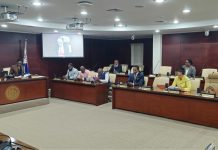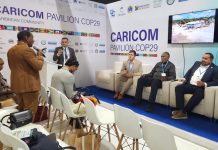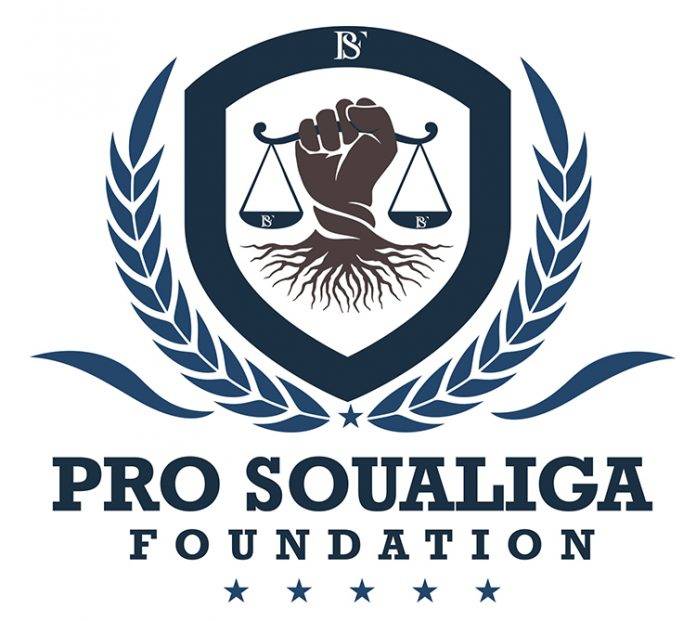PHILIPSBURG, Sint Maarten — During the recent IPKO meetings of 2021, Dutch Senator Oomen asked for examples of Dutch colonization in St. Maarten. Respectfully, Senator Oomen should bear in mind that when reference is made to Dutch colonization, it is imperative to do a comparative analysis with the obligations under the UN Charter because its members are bound to its principles under Article 103 which is often referred to as a (UN) supremacy clause.
A prime example of Dutch colonization in St. Maarten would be the issuance of a Royal Decree in November of 2017 whereby the Dutch Government demanded that Prime Minister W. Marlin resign with immediate effect. At the time, State Secretary Knops stated that as long as the Honorable Prime Minister remained in office there would be no liquidity support to help expedite St. Maarten’s reconstruction.
A further example of Dutch colonization in St Maarten is Article 44 of the Kingdom Charter whereby any “country” ordinance amending the Constitution must have Dutch approval. At the 521st Meeting of the Fourth Committee of the United Nations in November of 1955, it was declared that Article 44 “gave the Netherlands the power of veto on matters falling outside the scope of Kingdom Affairs.” Additionally, at the 526th Meeting of the Fourth Committee, Egypt and Indonesia agreed that Article 44 “gave the impression that there was no EQUAL PARTNERSHIP” between the Netherlands and the former Netherlands Antilles.
The last examples of Dutch colonization in St. Maarten are Articles 50 and 51 (Higher Supervision Articles) of the Kingdom Charter. The mere fact that the Kingdom Charter deems higher supervision to be a lawful act certainly connotes a high degree of colonization. Bear in mind that during the 524th Meeting of the Fourth Committee, Ecuador asserted that Article 50 “was even more restrictive” than Article 44 of the Kingdom Charter, and at the 522nd Meeting, Lebanon opined that Article 50 gave the Netherlands the status of being “all-powerful.” Article 51 was also mentioned at the 524th Meeting where the former Soviet Union (Russia) stated unequivocally that “in any REALLY self-governing territory that function (Article 51) would be vested in the territorial parliament.”
With many of its politicians contradicting each other, the Dutch government seems to be very confused when it comes to the topic of decolonization. On October 11th, 2016, MP Andre Bosman, former State Secretary Plasterk, and former leader of the PVV Fritsma all declared in the Tweede Kamer that the “Dutch” islands still fall under Article 73 of the United Nations Charter. In 2019, State Secretary Knops stated in a letter addressed to MP Bosman that the views of the Netherlands regarding Article 73 had changed. While the Dutch Government declared to the International Court of Justice in 2018 that “the right of self-determination of peoples is a permanent, continuing, universal and inalienable right with a peremptory character”, Senator Jorritsma, during this week’s IPKO meetings, stated that “the decolonization process has been finished.” There is a clear sign of dissonance among the Dutch politicians, and if the Dutch government cannot agree whether St. Maarten has been decolonized, then it stands to reason that they should seek out a competent entity to decide the status of St. Maarten’s decolonization process. According to Resolution 945X, the only competent body that can decide whether St. Maarten has been fully decolonized is the United Nations General Assembly. (Bear in mind that varying entities in Aruba, Curacao, Bonaire, St. Eustatius, and St. Maarten have all sent correspondence to the United Nations regarding Article 73 and decolonization.) As a founding member of the United Nations, the Netherlands, based on the continual dissonance amongst its politicians regarding decolonization, should arrange a meeting with the United Nations General Assembly to undoubtedly ascertain whether the decolonization process of St.Maarten and its sister islands has in fact been truly finalized.





























